RVs are perfect for people who love to travel and enjoy being on the road. They are fully equipped with everything you need to live comfortably, including a converter that helps you convert your vehicle’s DC power to AC. However, one of the most common questions we get asked is whether an RV converter will work without a battery. The answer is not that simple, so keep on reading to find out everything you need to know about running an RV converter without a battery.
Table of Contents
RV Converter and Its Functions
Essentially, an RV converter is an electronic device that converts the available AC power supply into DC power. The DC power is then stored in your RV’s battery for times when there is no AC power supply, such as when you’re not hooked up to an exterior power supply source. There are different types of RV converter, including the old models and the modern multi-stage models. [1]
The old RV converters typically have a single-stage charging system, which charges your RV’s battery at a constant voltage irrespective of the battery’s state of charge. One issue with this system is that when the battery is near full capacity, the charging rate slows down, leading to an overcharge, which could damage your RV’s battery. Modern multi-stage RV converters, on the other hand, offer a more efficient charging system. The systems gradually reduce the charging rate between 80% to 100% of the battery’s full capacity, preventing an overcharge of your RV’s battery.
One area where an RV converter is essential is during boondocking or camping off the grid. At these times, the converter helps to regulate the amount of power drawn from your RV’s battery and maintains a constant charge rate to keep your battery optimum. It also prevents power surges and fluctuations that could damage your RV’s sensitive electronics.
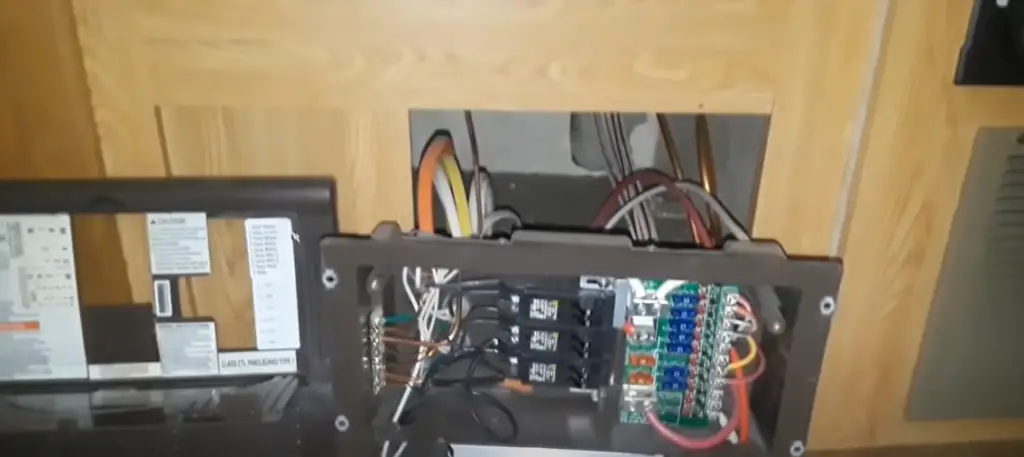
The RV converter is an essential device that every RVer must-have. It helps you regulate and manage your RV’s power supply more efficiently, providing an uninterrupted power supply while camping off-grid. When buying an RV converter, ensure to check the available options and compare their features and power rating before making a purchase. This way, you can be sure you get the best-suited converter for your RV’s power consumption goals. Happy RVing!
RV Converter: How It Works
For anyone who’s ever spent time in an RV, you know how important it is to have a reliable power source. When you’re on the road, you need to be able to power all of the electronics, lights and appliances, and you need to be able to do it without worrying about your batteries dying or your generator running out of gas.
That’s where RV converters come in. An RV converter is a piece of equipment that converts 120-volt AC power (like you would find in a house) into 12-volt DC power (like you would find in a car). This type of power is used to power your RV’s appliances, lights, and electronics, and it’s what keeps your battery charged when you’re plugged into shore power.
Understanding the Components of an RV Converter
At its most basic level, an RV converter is made up of two main components: a transformer and a rectifier. The transformer is responsible for converting the 120-volt AC power into a lower voltage that can be used to charge your RV battery, while the rectifier converts the AC power into DC power. Additionally, most RV converters also include a built-in battery charger, which allows you to charge your battery directly from shore power. Some newer RV converters even include a built-in inverter, which allows you to convert DC power back into AC power, giving you the best of both worlds.
How an RV Converter Works
When you plug your RV into shore power, the electrical system in your RV automatically switches over to the converter, which is responsible for supplying power to all of your appliances, lights, and electronics while also charging your battery. As mentioned, the transformer steps down the voltage from 120 volts to a lower voltage that can be used to charge your battery, while the rectifier converts the AC power into DC power. As you use power in your RV, the converter continues to supply DC power to your electrical system. If you’re plugged into shore power and your battery is fully charged, the converter will supply all of the power you need. If your battery starts to run low, the converter will automatically switch to charging mode, providing power to both your electrical system and your battery.
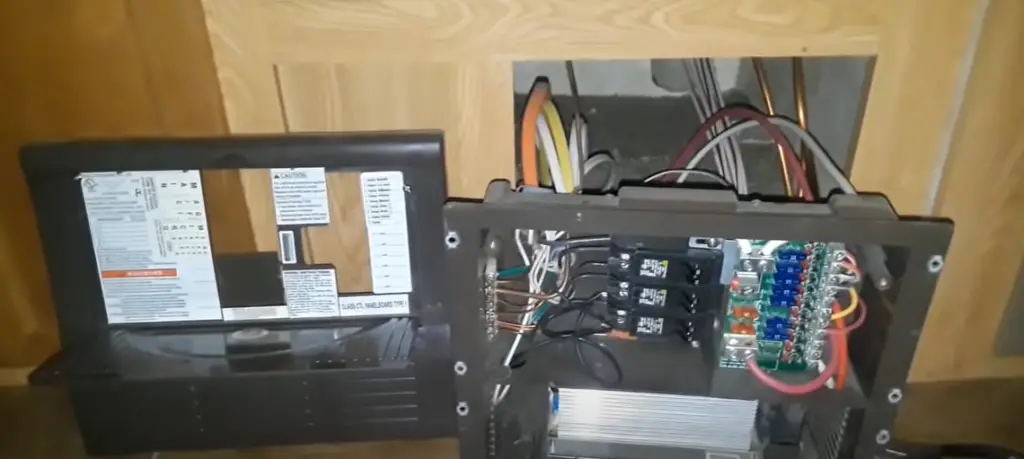
Common RV Converter Problems
While RV converters are relatively simple pieces of equipment, they can still run into problems from time to time. One of the most common issues is when the converter fails to charge your battery properly. This is often caused by a faulty transformer or rectifier, and it can result in a dead battery. Another common issue is when the converter overcharges your battery, which can cause it to fail prematurely. Finally, RV converters can sometimes fail altogether, which will result in a complete loss of power to your electrical system.
To ensure that your RV converter continues to work properly, it’s important to keep it well-maintained. This includes regularly cleaning and inspecting the unit, checking the battery connections, and making sure that the voltage output is correct.
Additionally, it’s important to make sure that your RV’s electrical system is properly wired. If the wiring is incorrect or outdated, it can put undue strain on your converter and cause it to fail prematurely.
An RV converter is an essential piece of equipment for any RV owner, and understanding how it works is key to maintaining your RV’s electrical system. Whether you’re on the road for an extended trip or just taking a weekend getaway, a reliable power source is critical for keeping your RV comfortable and functional. By understanding the components of your RV converter, how it works, and how to maintain it, you can ensure that your RV’s electrical system runs smoothly and that you never have to worry about running out of power when you’re on the road.
The Connection Between RV Converter and Battery
The RV converter is responsible for converting the AC voltage from the power source to DC voltage. It is a vital component of the RV’s electrical system because it charges the RV battery and powers the DC appliances when the RV is not connected to shore power. Without it, your RV battery would run out of charge, and you would lose power to the vital systems, including the water pump, lights, furnace, and refrigerator.
To ensure that the RV converter and battery are working correctly, you need to maintain them regularly. Keep them clean, checking for any corrosion, loose connections, or damage. Check the battery terminals and clean them from any dirt or debris regularly. You should also check the RV battery’s water levels and ensure they are not low. Keep the battery terminals tightened so that it can be connected to the converter properly.
If you own an older RV, you might consider having your RV checked by a professional for any updates or conversions. An upgrade might help improve the performance of the converter and battery and save you unnecessary expenses in the long run. Invest in a higher-quality converter that is designed to operate quietly and efficiently for your RV.
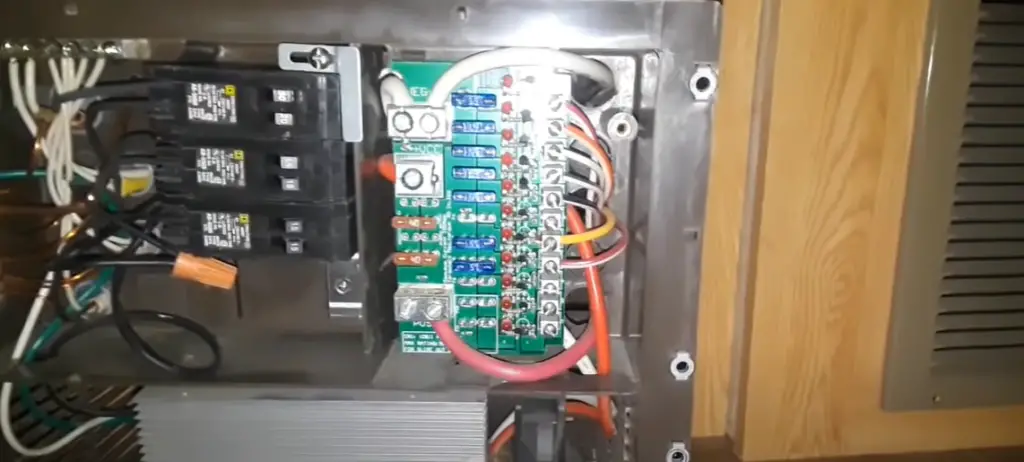
Will an RV Converter Work Without a Battery?
The world of RVing is fascinating and unique, and it’s no wonder why more and more people are opting for this lifestyle. An RV provides a comfortable and convenient means of travel, especially when you’re out exploring the great outdoors. One critical component that all RVers need to pay attention to is the electrical system, as it plays a crucial role in sustaining their lifestyle while on the road. Specifically, many RV owners wonder whether an RV converter can function without a battery? In this part, we explore this question in more detail and offer some insights that can help you better understand how your RV’s electrical system works.
Can an RV converter function without a battery? The answer is yes, it can, but only to a limited extent. As mentioned earlier, a converter requires a consistent source of power to function effectively, and a battery provides precisely that. A battery acts as a buffer, absorbing voltage fluctuations and providing the converter with a stable power source. Without a battery, there is a higher chance of voltage fluctuations, which can result in damage to your RV’s electrical system. [2]
That being said, suppose you’re parking your RV in a location with a stable power supply, such as a full hook-up RV park or your home driveway. In that case, it is possible to operate your RV’s electrical system without a battery. However, this is not recommended, primarily if you’re planning to go off-grid or if you need to keep your RV’s electrical system running for an extended period. In most cases, RVers use a battery in conjunction with their RV converter, as it helps ensure consistent power, no matter the situation.
If you’re thinking of getting an RV and wondering whether you need a converter, the answer is yes, you do. A converter is a vital component of your RV’s electrical system, and it helps power many of your onboard systems and appliances. However, a converter cannot function effectively without a battery, so it’s important to ensure that you have one installed in your RV. In addition, it’s also crucial to keep your battery charged, so it can continue to provide a stable power source for your converter.
As an RV owner, it’s essential to understand how your electrical system works and the role that each component plays. A converter is a necessary component, but it requires a battery to function effectively. While it is possible to operate your RV’s electrical system without a battery, it’s not recommended, and it’s crucial to have one installed to ensure consistent power.
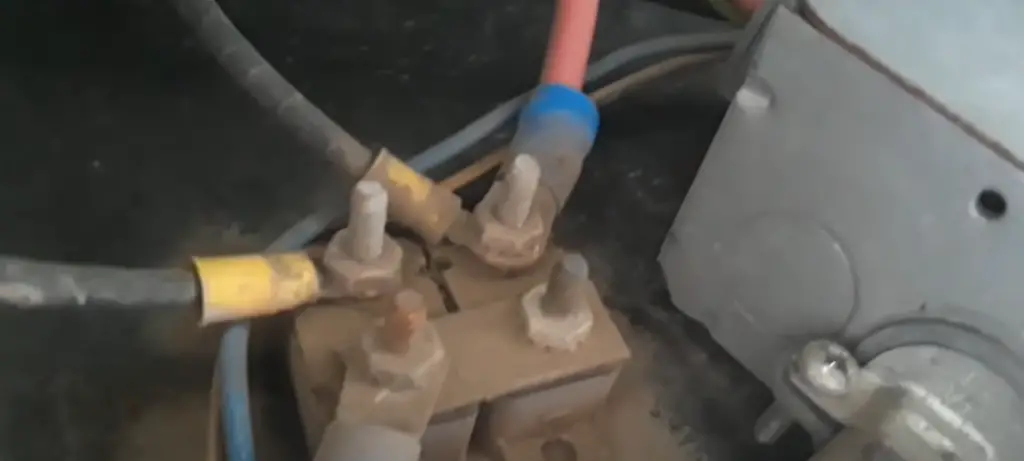
Benefits and Drawbacks of RV Converter
When it comes to traveling and exploring nature with ultimate comfort and convenience, RVs are one of the most popular choices for many. It’s a home on wheels, allowing you to hit the road and travel to your desired destination without the hassle of finding hotels or motels. However, to make your RV a comfortable and functional living space, there are several appliances that require a reliable and efficient source of power. This is when RV converters come in handy.
Benefits of RV Converters
- Increased Efficiency: One of the most significant advantages of RV converters is that they help improve the efficiency of the power supply for all the appliances. Traditional systems, like generators or batteries, can be limited in their power supply and recharge, which means they may not always produce enough power. However, with an RV converter, the power supply is more consistent, reliable, and stable, allowing you to power all the necessary appliances in your RV without worrying about running out of power.
- Cost-Effective: RV converters are relatively inexpensive compared to other power systems, making them a cost-effective solution for RV enthusiasts. They require very little maintenance, are easy to install, and offer a reliable power supply. When compared to other power systems, such as solar panels or generators, the initial investment is comparatively lower, making them an attractive alternative.
- Easy to Use: RV converters are incredibly user-friendly and easy to operate. All you need to do is plug them into an outlet, and you are good to go. Moreover, they do not require any manual intervention, and their automatic controls ensure that the power supply is optimized based on the load requirements.
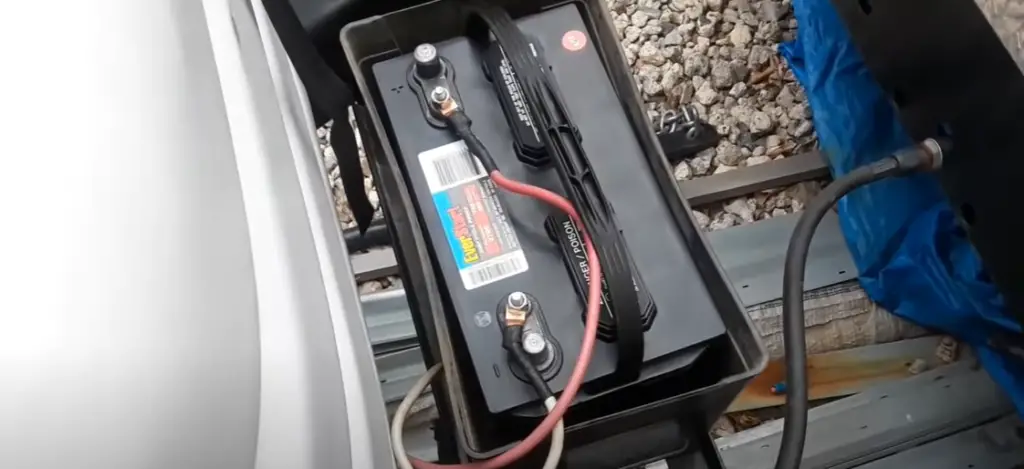
Drawbacks of RV Converters
- Noise: One of the significant drawbacks of RV converters is that they can be quite noisy. The fans used to cool down the converters can create a constant hum, which can be quite distracting and annoying, especially if you are trying to sleep or relax.
- Limited Power Supply: While RV converters are efficient, they have a limited power supply. They are primarily designed to provide power to the essential appliances and may not be able to keep up with the power demands of larger appliances such as microwaves or hair dryers.
- High Energy Consumption: RV converters can consume a lot of energy, which can be a drawback when you are trying to conserve your energy supply. One way to overcome this issue is to opt for converter-chargers that switch off when the battery is fully charged.
RV converters have become an essential component for RV enthusiasts, but they do come with their own set of benefits and drawbacks. While they offer an efficient, cost-effective, and easy-to-use solution for reliable power supply, their limitations in terms of power supply, noise, and energy consumption make them less attractive for some RVers. The good news is that there are several alternative power systems available, such as solar panels, generators, or lithium batteries, which offer a more sustainable and reliable power supply. Ultimately, the choice of the power system will depend on your requirements, budget, and personal preferences.
RV Converter Maintenance Tips
Before you hit the road in your RV for your next adventure, it is important to take stock of the condition of your RV’s electrical system to avoid any problems while on the road. One of the most crucial components of your RV’s electrical system is the converter. It is responsible for converting AC power to DC power to run your RV’s appliances. Without proper maintenance, your RV’s converter can malfunction, leaving you without power during your trip. Let’s discuss essential RV converter maintenance tips to ensure a smooth and uninterrupted road trip.
Conduct a visual inspection of the converter
The first step in converter maintenance is to visually inspect it for any signs of damage or corrosion. A damaged converter can be a hazard, and it is best to replace it immediately. If the converter seems to be in good condition, proceed to the next step.
Check the battery connections:
The battery connections are a critical component of the converter system. Check the connections for any build-up or corrosion, and clean them using a wire brush. Make sure the connections are tight to avoid voltage fluctuations.

Inspect the fuses and breaker panel:
Check the fuses and breaker panel for any blown fuses or tripped breakers. Replace any damaged fuses, and reset any tripped breakers. [3]
Check the converter AC input voltage:
Most RV converters come with automatic voltage detection features, but it is still essential to periodically check the voltage input manually and make sure it is within the recommended range.
Lubricate the converter fan:
Your converter has a fan that helps to regulate its temperature. Ensure the fan is adequately lubricated to avoid any issues with overheating.
Keeping up with the maintenance of your RV’s converter is essential to ensure a safe, smooth, and uninterrupted road trip. These simple maintenance tips can help you to identify any potential issues before they result in a breakdown. As always, remember to check the manufacturer’s manual for specific converter maintenance instructions. With proper maintenance, you can enjoy stress-free and comfortable travels in your RV.
FAQ
Can you run a camper without a converter?
The answer is no. You won’t be able to power most of the devices in your RV without a converter. The converter is responsible for taking the AC power from an external source, such as a generator or shore power, and then converting it into DC power to use in your RV.
Is an RV converter the same as an RV inverter?
No, an RV converter is not the same as an RV inverter. While an RV converter converts AC power to DC power, an RV inverter does the opposite. It converts DC power from your RV batteries into AC power to run certain AC appliances, such as a television or microwave, without the need for shore power or a generator. In short, an RV converter is used when you’re connected to an external power source, while an RV inverter is used when you’re off-grid.
What is an RV converter?
An RV converter is an electrical device that converts AC power from an external source, such as a generator or shore power, into DC power to use within the RV’s electrical system.
Useful Video: Fixed RV DC Electrical Issue | No DC Power on “House” Battery Solved*
Conclusions
In conclusion, a converter is essential in an RV because it helps convert DC power to AC power when you’re plugged into shore power. While it is possible to run an RV converter without a battery, it’s not recommended. The converter needs a load to function correctly and maintain voltaic flow. Additionally, a battery is vital for regulating electrical flow and protecting the converter from surges that could damage it. Keeping your battery healthy should be a priority if you plan on having a successful and comfortable RV experience. We hope this article has answered your questions about running an RV converter without a battery.
References:
- https://rvservices.koa.com/rvinformation/rvmaintenance/rv-converters-and-amp-draw/#:~:text=First%20of%20all%20let’s%20talk,and%20accessories%20in%20the%20RV.
- https://www.mortonsonthemove.com/rv-power-converter/
- https://www.ecocampor.com/blog/how-to-tell-if-rv-converter-is-bad/

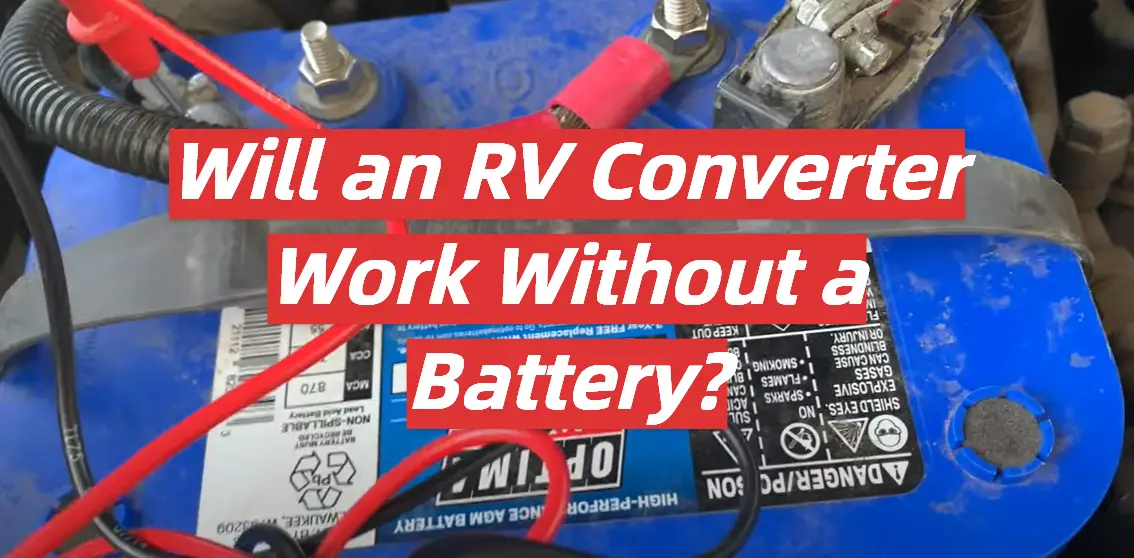

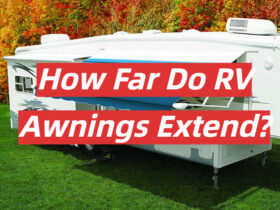
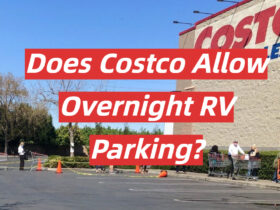
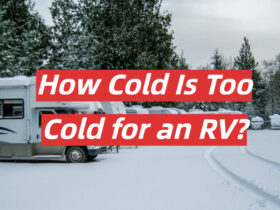
Leave a Reply